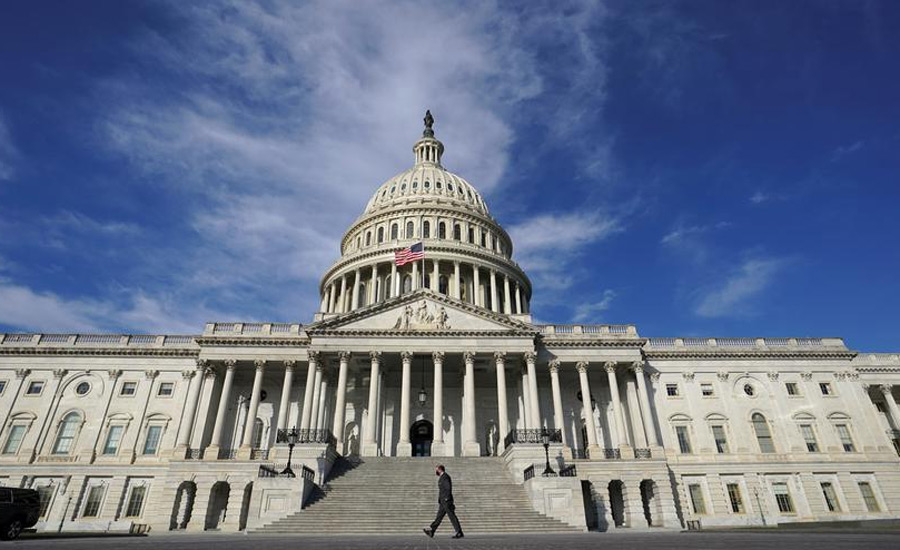Senate Democrats delay introduction of Biden's $1.9 trillion COVID-19 aid bill

WASHINGTON (Reuters) - The US Senate delayed the start of debate on President Joe Biden’s $1.9 trillion COVID-19 relief bill until at least Thursday after reaching a deal to phase out $1,400 payments to higher-income Americans in a compromise with moderate Democratic senators.
The Democratic-controlled Senate is hoping for a final vote later in the week on passage of Biden’s top legislative priority. Before the bill hits the chamber floor, Democrats are negotiating limits to a measure Republicans have attacked as wasteful.
The Senate will reconvene at noon (1700 GMT) on Thursday, said Senator Dick Durbin, the chamber’s No. 2 Democrat. The House of Representatives canceled its Thursday session after the Capitol Police warned of a possible attack on the building by a militia group.
Senate officials did not respond to questions about whether their security plans would change.
Senate Democrats said the coronavirus stimulus proposal, which would block Americans earning $80,000 per year or more and couples earning $160,000 or more from receiving the $1,400 payments, was a good solution.
The income cutoff had been higher - $100,000 for individuals and $200,000 for couples filing jointly - in the version of the legislation passed by the Democratic-led House.
Senator Joe Manchin, a centrist Democrat, told reporters: “I’m very pleased with the discussions and dialogues and some changes that have been agreed upon.” But he said he did not know the fate of another change he sought, to scale back enhanced unemployment benefits to $300 a week from $400.
The compromise would mean about 9 million fewer households would get direct payments than did so in the last round of stimulus.
The 100-seat Senate, where control is split 50-50 between Democrats and Republicans, will at some point consider a motion to begin 20 hours of debate on the sweeping legislation. That vote could be an early indicator of how much Republican opposition the package faces.
The bill would pay for vaccines and medical supplies, boost jobless assistance and send a new round of emergency financial aid to households, small businesses and state and local governments. Democrats aim to get it to Biden to sign into law before March 14, when some current benefits expire.
“The plan that we are going to vote on this week is going to provide real, robust relief for all of us,” Senate Majority Leader Chuck Schumer said.







